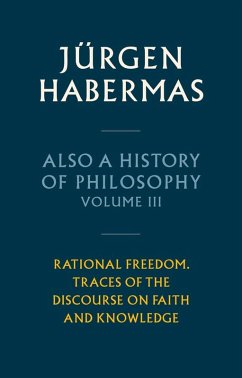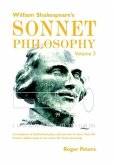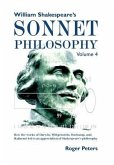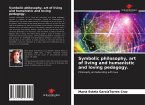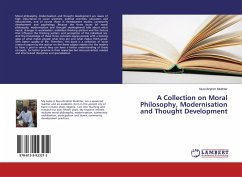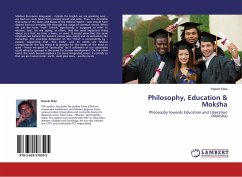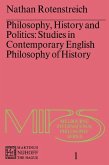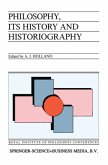Jurgen HabermasRational Freedom. Traces of the Discourse on Faith and Knowledge
Also a History of Philosophy, Volume 3
Rational Freedom. Traces of the Discourse on Faith and Knowledge
Übersetzer: Cronin, Ciaran
Jurgen HabermasRational Freedom. Traces of the Discourse on Faith and Knowledge
Also a History of Philosophy, Volume 3
Rational Freedom. Traces of the Discourse on Faith and Knowledge
Übersetzer: Cronin, Ciaran
- Gebundenes Buch
- Merkliste
- Auf die Merkliste
- Bewerten Bewerten
- Teilen
- Produkt teilen
- Produkterinnerung
- Produkterinnerung
In the final volume of his history of philosophy, Jürgen Habermas offers a series of brilliant interpretations of the thinkers who set the agenda for contemporary philosophy. Beginning with masterful readings of Hume and Kant, he traces the genealogy of their postmetaphysical thinking through the main currents of historicism and German Idealism, and the multifarious reactions to Hegel's influential system, culminating in nuanced readings of Marx, Kierkegaard and Peirce. Through his analysis of their work, Habermas demonstrates the interpretive fecundity of the central themes of his…mehr
Andere Kunden interessierten sich auch für
![William Shakespeare's Sonnet Philosophy, Volume 3 William Shakespeare's Sonnet Philosophy, Volume 3]() Roger PetersWilliam Shakespeare's Sonnet Philosophy, Volume 338,99 €
Roger PetersWilliam Shakespeare's Sonnet Philosophy, Volume 338,99 €![William Shakespeare's Sonnet Philosophy, Volume 4 William Shakespeare's Sonnet Philosophy, Volume 4]() Roger PetersWilliam Shakespeare's Sonnet Philosophy, Volume 436,99 €
Roger PetersWilliam Shakespeare's Sonnet Philosophy, Volume 436,99 €![Symbolic philosophy, art of living and humanistic and loving pedagogy. Symbolic philosophy, art of living and humanistic and loving pedagogy.]() María Estela GarcíaTorres CruzSymbolic philosophy, art of living and humanistic and loving pedagogy.36,99 €
María Estela GarcíaTorres CruzSymbolic philosophy, art of living and humanistic and loving pedagogy.36,99 €![A Collection on Moral Philosophy, Modernisation and Thought Development A Collection on Moral Philosophy, Modernisation and Thought Development]() Nura Ibrahim MukhtarA Collection on Moral Philosophy, Modernisation and Thought Development26,99 €
Nura Ibrahim MukhtarA Collection on Moral Philosophy, Modernisation and Thought Development26,99 €![Philosophy, Education & Moks¿ha Philosophy, Education & Moks¿ha]() Rajesh EkkaPhilosophy, Education & Moks¿ha26,99 €
Rajesh EkkaPhilosophy, Education & Moks¿ha26,99 €![Philosophy, History and Politics Philosophy, History and Politics]() Nathan RotenstreichPhilosophy, History and Politics83,99 €
Nathan RotenstreichPhilosophy, History and Politics83,99 €![Philosophy, its History and Historiography Philosophy, its History and Historiography]() Philosophy, its History and Historiography125,99 €
Philosophy, its History and Historiography125,99 €-
-
-
In the final volume of his history of philosophy, Jürgen Habermas offers a series of brilliant interpretations of the thinkers who set the agenda for contemporary philosophy. Beginning with masterful readings of Hume and Kant, he traces the genealogy of their postmetaphysical thinking through the main currents of historicism and German Idealism, and the multifarious reactions to Hegel's influential system, culminating in nuanced readings of Marx, Kierkegaard and Peirce. Through his analysis of their work, Habermas demonstrates the interpretive fecundity of the central themes of his philosophical enterprise - his pragmatist theory of meaning, his communicative theories of subjectivity and sociality, and his discursive theory of normativity in its moral, juridical and political manifestations. In contrast to the bland compendia of thinkers and positions generally presented in surveys of the history of philosophy, Habermas's thematically focused interpretations are destined to provoke controversy and stimulate dialogue. With this work one of the indisputably great thinkers of our time presents a powerful vindication of his conception of philosophy as an inherently discursive - and not merely analytical or speculative - enterprise.
Hinweis: Dieser Artikel kann nur an eine deutsche Lieferadresse ausgeliefert werden.
Hinweis: Dieser Artikel kann nur an eine deutsche Lieferadresse ausgeliefert werden.
Produktdetails
- Produktdetails
- Verlag: John Wiley and Sons Ltd
- Seitenzahl: 578
- Erscheinungstermin: 28. März 2025
- Englisch
- ISBN-13: 9781509558650
- ISBN-10: 1509558659
- Artikelnr.: 71743431
- Herstellerkennzeichnung
- Produktsicherheitsverantwortliche/r
- Europaallee 1
- 36244 Bad Hersfeld
- gpsr@libri.de
- Verlag: John Wiley and Sons Ltd
- Seitenzahl: 578
- Erscheinungstermin: 28. März 2025
- Englisch
- ISBN-13: 9781509558650
- ISBN-10: 1509558659
- Artikelnr.: 71743431
- Herstellerkennzeichnung
- Produktsicherheitsverantwortliche/r
- Europaallee 1
- 36244 Bad Hersfeld
- gpsr@libri.de
Jürgen Habermas is Emeritus Professor of Philosophy at the Johann Wolfgang Goethe University of Frankfurt and one of the leading philosophers and social and political thinkers in the world today.
Acknowledgements
VIII. AT THE PARTING OF WAYS OF POSTMETAPHYSICAL THINKING: HUME AND KANT
1. Hume's Deconstruction of the Theological Heritage of Practical
Philosophy
(1) Basic concepts of empiricist theory of knowledge
(2) Anthropology of religion and religious scepticism
(3) The psychological analysis of natural causality
(4) The deconstruction of the basic concepts of practical philosophy
2. The Anthropological Explanation of Law and Morality
(1) An emotivist explanation of the virtues
(2) The utility of social virtues
(3) The problematic transition from attractive values to obligatory norms
(4) The deflation of the normative and the denial of the problem of
rational law
3. Kant's Answer to Hume: The Practical Meaning of the Transcendental Turn
and its Background in the Philosophy of Religion
(1) The transcendental ego and the reconstruction of its operations
(2) Critique and appropriating translation of the Lutheran
Heritage
4. The Postmetaphysical Justification of an Inherent Interest of Reason
(1) From theoretical to practical philosophy: concept of autonomy and mode
of validity of moral obligation
(2) Rational faith and the motivational weakness of rational morality
(3) Critique of the doctrine of postulates and the idea of the ethical
commonwealth
(4) The interest of reason in the cosmopolitan condition
(5) Preview of motifs of Kant criticism
IX. LINGUISTIC EMBODIMENT OF REASON: FROM SUBJECTIVE TO 'OBJECTIVE' MIND
1. Political, Economic, Cultural and Scientific Impulses for a Paradigm
Shift
(1) The two constitutional revolutions and the theory of human rights
(2) Industrial capitalism and political economy
(3) Historical consciousness, history and hermeneutics
(4) Herder's appreciation of the individuality of historical phenomena
2. Motives for the Linguistic Turn in Herder, Schleiermacher and Humboldt
(1) Herder
(2) Schleiermacher
(3) Humboldt
3. Hegel's Assimilation of Faith to Knowledge: The Renewal of Metaphysical
Thinking after Kant
(1) Hegel's critique of Schleiermacher's noncognitivist understanding of
religion
(2) Beyond metaphysics and Kant to the 'third position of thought'
(3) God's incarnation as a model for the self-mediation of the absolute
4. Reason in History: Autonomy versus Self-Movement of the Concept
(1) Historical progress in the collective consciousness of freedom
(2) Process of formation of free will in law, morality and ethical
life
(3) Critical theory of society, conservative theory of the state
(4) The controversy over the relationship between morality and ethical life
(5) Preview of motifs of Hegel criticism
Third Intermediate Reflection: From Objective Mind to Communicative
Socialization of Knowing and Acting Subjects
(1) A formal pragmatic analysis of Hegel's concept of totality
(2) The paradigm shift from the philosophy of consciousness to
the philosophy of language
(3) Problems generated by the disintegration of the Hegelian
System
X. THE CONTEMPORANEITY OF THE YOUNG HEGELIANS AND THE PROBLEMS OF
POSTMETAPHYSICAL THINKING
1. Ludwig Feuerbach's Anthropological Turn: On the Form of Life of
Organically Embodied and Communicatively Socialized Subjects
(1) Letter to Hegel and The Essence of Christianity
(2) Dependence on nature and communicative socialization of 'passionate'
subjects
2. Karl Marx on the Historical Freedom of Productive and Politically Acting
Subjects
(1) Sublation of the state in society?
(2) The historical-materialist concept of society
(3) The ambivalent meaning of the 'naturalness' of what exists
(4) Development of productive forces and political emancipation
(5) The capitalist system as the realm of necessity and the 'realm of
freedom' as a false abstraction
3. Soren Kierkegaard: A Religious Author on the Ethical-Existential Freedom
of the Biographically Individuated Subject
(1) The paradox of the content of faith and the authenticity of the lived
faith
(2) The historicity of existence and the stages of life leading to
'self-selection'
(3) The Kantian Socrates and the ethical way of life as an alternative to
ethical-religious conversion?
(4) History of the reception of the religious author and the open question
of ritual
4. Interpretive Processes between Truth-Reference and Action-Reference:
Peirce as Initiator of Pragmatism
(1) Critique of the philosophy of the subject and the consequences of the
semiotic turn
(2) Rationality and freedom: the pragmatist conception of the
problem-solving action of communicatively socialized subjects
5. On the Mode of Embodiment of Reason in Research and Political Practices
(1) The pragmatic enabling conditions of cooperative research
(2) The practices of rational morality and of the democratic constitutional
state
Postscript
Afterword
Overview: Volumes 1-3 [TBC]
Notes
Bibliography
Index
VIII. AT THE PARTING OF WAYS OF POSTMETAPHYSICAL THINKING: HUME AND KANT
1. Hume's Deconstruction of the Theological Heritage of Practical
Philosophy
(1) Basic concepts of empiricist theory of knowledge
(2) Anthropology of religion and religious scepticism
(3) The psychological analysis of natural causality
(4) The deconstruction of the basic concepts of practical philosophy
2. The Anthropological Explanation of Law and Morality
(1) An emotivist explanation of the virtues
(2) The utility of social virtues
(3) The problematic transition from attractive values to obligatory norms
(4) The deflation of the normative and the denial of the problem of
rational law
3. Kant's Answer to Hume: The Practical Meaning of the Transcendental Turn
and its Background in the Philosophy of Religion
(1) The transcendental ego and the reconstruction of its operations
(2) Critique and appropriating translation of the Lutheran
Heritage
4. The Postmetaphysical Justification of an Inherent Interest of Reason
(1) From theoretical to practical philosophy: concept of autonomy and mode
of validity of moral obligation
(2) Rational faith and the motivational weakness of rational morality
(3) Critique of the doctrine of postulates and the idea of the ethical
commonwealth
(4) The interest of reason in the cosmopolitan condition
(5) Preview of motifs of Kant criticism
IX. LINGUISTIC EMBODIMENT OF REASON: FROM SUBJECTIVE TO 'OBJECTIVE' MIND
1. Political, Economic, Cultural and Scientific Impulses for a Paradigm
Shift
(1) The two constitutional revolutions and the theory of human rights
(2) Industrial capitalism and political economy
(3) Historical consciousness, history and hermeneutics
(4) Herder's appreciation of the individuality of historical phenomena
2. Motives for the Linguistic Turn in Herder, Schleiermacher and Humboldt
(1) Herder
(2) Schleiermacher
(3) Humboldt
3. Hegel's Assimilation of Faith to Knowledge: The Renewal of Metaphysical
Thinking after Kant
(1) Hegel's critique of Schleiermacher's noncognitivist understanding of
religion
(2) Beyond metaphysics and Kant to the 'third position of thought'
(3) God's incarnation as a model for the self-mediation of the absolute
4. Reason in History: Autonomy versus Self-Movement of the Concept
(1) Historical progress in the collective consciousness of freedom
(2) Process of formation of free will in law, morality and ethical
life
(3) Critical theory of society, conservative theory of the state
(4) The controversy over the relationship between morality and ethical life
(5) Preview of motifs of Hegel criticism
Third Intermediate Reflection: From Objective Mind to Communicative
Socialization of Knowing and Acting Subjects
(1) A formal pragmatic analysis of Hegel's concept of totality
(2) The paradigm shift from the philosophy of consciousness to
the philosophy of language
(3) Problems generated by the disintegration of the Hegelian
System
X. THE CONTEMPORANEITY OF THE YOUNG HEGELIANS AND THE PROBLEMS OF
POSTMETAPHYSICAL THINKING
1. Ludwig Feuerbach's Anthropological Turn: On the Form of Life of
Organically Embodied and Communicatively Socialized Subjects
(1) Letter to Hegel and The Essence of Christianity
(2) Dependence on nature and communicative socialization of 'passionate'
subjects
2. Karl Marx on the Historical Freedom of Productive and Politically Acting
Subjects
(1) Sublation of the state in society?
(2) The historical-materialist concept of society
(3) The ambivalent meaning of the 'naturalness' of what exists
(4) Development of productive forces and political emancipation
(5) The capitalist system as the realm of necessity and the 'realm of
freedom' as a false abstraction
3. Soren Kierkegaard: A Religious Author on the Ethical-Existential Freedom
of the Biographically Individuated Subject
(1) The paradox of the content of faith and the authenticity of the lived
faith
(2) The historicity of existence and the stages of life leading to
'self-selection'
(3) The Kantian Socrates and the ethical way of life as an alternative to
ethical-religious conversion?
(4) History of the reception of the religious author and the open question
of ritual
4. Interpretive Processes between Truth-Reference and Action-Reference:
Peirce as Initiator of Pragmatism
(1) Critique of the philosophy of the subject and the consequences of the
semiotic turn
(2) Rationality and freedom: the pragmatist conception of the
problem-solving action of communicatively socialized subjects
5. On the Mode of Embodiment of Reason in Research and Political Practices
(1) The pragmatic enabling conditions of cooperative research
(2) The practices of rational morality and of the democratic constitutional
state
Postscript
Afterword
Overview: Volumes 1-3 [TBC]
Notes
Bibliography
Index
Acknowledgements
VIII. AT THE PARTING OF WAYS OF POSTMETAPHYSICAL THINKING: HUME AND KANT
1. Hume's Deconstruction of the Theological Heritage of Practical
Philosophy
(1) Basic concepts of empiricist theory of knowledge
(2) Anthropology of religion and religious scepticism
(3) The psychological analysis of natural causality
(4) The deconstruction of the basic concepts of practical philosophy
2. The Anthropological Explanation of Law and Morality
(1) An emotivist explanation of the virtues
(2) The utility of social virtues
(3) The problematic transition from attractive values to obligatory norms
(4) The deflation of the normative and the denial of the problem of
rational law
3. Kant's Answer to Hume: The Practical Meaning of the Transcendental Turn
and its Background in the Philosophy of Religion
(1) The transcendental ego and the reconstruction of its operations
(2) Critique and appropriating translation of the Lutheran
Heritage
4. The Postmetaphysical Justification of an Inherent Interest of Reason
(1) From theoretical to practical philosophy: concept of autonomy and mode
of validity of moral obligation
(2) Rational faith and the motivational weakness of rational morality
(3) Critique of the doctrine of postulates and the idea of the ethical
commonwealth
(4) The interest of reason in the cosmopolitan condition
(5) Preview of motifs of Kant criticism
IX. LINGUISTIC EMBODIMENT OF REASON: FROM SUBJECTIVE TO 'OBJECTIVE' MIND
1. Political, Economic, Cultural and Scientific Impulses for a Paradigm
Shift
(1) The two constitutional revolutions and the theory of human rights
(2) Industrial capitalism and political economy
(3) Historical consciousness, history and hermeneutics
(4) Herder's appreciation of the individuality of historical phenomena
2. Motives for the Linguistic Turn in Herder, Schleiermacher and Humboldt
(1) Herder
(2) Schleiermacher
(3) Humboldt
3. Hegel's Assimilation of Faith to Knowledge: The Renewal of Metaphysical
Thinking after Kant
(1) Hegel's critique of Schleiermacher's noncognitivist understanding of
religion
(2) Beyond metaphysics and Kant to the 'third position of thought'
(3) God's incarnation as a model for the self-mediation of the absolute
4. Reason in History: Autonomy versus Self-Movement of the Concept
(1) Historical progress in the collective consciousness of freedom
(2) Process of formation of free will in law, morality and ethical
life
(3) Critical theory of society, conservative theory of the state
(4) The controversy over the relationship between morality and ethical life
(5) Preview of motifs of Hegel criticism
Third Intermediate Reflection: From Objective Mind to Communicative
Socialization of Knowing and Acting Subjects
(1) A formal pragmatic analysis of Hegel's concept of totality
(2) The paradigm shift from the philosophy of consciousness to
the philosophy of language
(3) Problems generated by the disintegration of the Hegelian
System
X. THE CONTEMPORANEITY OF THE YOUNG HEGELIANS AND THE PROBLEMS OF
POSTMETAPHYSICAL THINKING
1. Ludwig Feuerbach's Anthropological Turn: On the Form of Life of
Organically Embodied and Communicatively Socialized Subjects
(1) Letter to Hegel and The Essence of Christianity
(2) Dependence on nature and communicative socialization of 'passionate'
subjects
2. Karl Marx on the Historical Freedom of Productive and Politically Acting
Subjects
(1) Sublation of the state in society?
(2) The historical-materialist concept of society
(3) The ambivalent meaning of the 'naturalness' of what exists
(4) Development of productive forces and political emancipation
(5) The capitalist system as the realm of necessity and the 'realm of
freedom' as a false abstraction
3. Soren Kierkegaard: A Religious Author on the Ethical-Existential Freedom
of the Biographically Individuated Subject
(1) The paradox of the content of faith and the authenticity of the lived
faith
(2) The historicity of existence and the stages of life leading to
'self-selection'
(3) The Kantian Socrates and the ethical way of life as an alternative to
ethical-religious conversion?
(4) History of the reception of the religious author and the open question
of ritual
4. Interpretive Processes between Truth-Reference and Action-Reference:
Peirce as Initiator of Pragmatism
(1) Critique of the philosophy of the subject and the consequences of the
semiotic turn
(2) Rationality and freedom: the pragmatist conception of the
problem-solving action of communicatively socialized subjects
5. On the Mode of Embodiment of Reason in Research and Political Practices
(1) The pragmatic enabling conditions of cooperative research
(2) The practices of rational morality and of the democratic constitutional
state
Postscript
Afterword
Overview: Volumes 1-3 [TBC]
Notes
Bibliography
Index
VIII. AT THE PARTING OF WAYS OF POSTMETAPHYSICAL THINKING: HUME AND KANT
1. Hume's Deconstruction of the Theological Heritage of Practical
Philosophy
(1) Basic concepts of empiricist theory of knowledge
(2) Anthropology of religion and religious scepticism
(3) The psychological analysis of natural causality
(4) The deconstruction of the basic concepts of practical philosophy
2. The Anthropological Explanation of Law and Morality
(1) An emotivist explanation of the virtues
(2) The utility of social virtues
(3) The problematic transition from attractive values to obligatory norms
(4) The deflation of the normative and the denial of the problem of
rational law
3. Kant's Answer to Hume: The Practical Meaning of the Transcendental Turn
and its Background in the Philosophy of Religion
(1) The transcendental ego and the reconstruction of its operations
(2) Critique and appropriating translation of the Lutheran
Heritage
4. The Postmetaphysical Justification of an Inherent Interest of Reason
(1) From theoretical to practical philosophy: concept of autonomy and mode
of validity of moral obligation
(2) Rational faith and the motivational weakness of rational morality
(3) Critique of the doctrine of postulates and the idea of the ethical
commonwealth
(4) The interest of reason in the cosmopolitan condition
(5) Preview of motifs of Kant criticism
IX. LINGUISTIC EMBODIMENT OF REASON: FROM SUBJECTIVE TO 'OBJECTIVE' MIND
1. Political, Economic, Cultural and Scientific Impulses for a Paradigm
Shift
(1) The two constitutional revolutions and the theory of human rights
(2) Industrial capitalism and political economy
(3) Historical consciousness, history and hermeneutics
(4) Herder's appreciation of the individuality of historical phenomena
2. Motives for the Linguistic Turn in Herder, Schleiermacher and Humboldt
(1) Herder
(2) Schleiermacher
(3) Humboldt
3. Hegel's Assimilation of Faith to Knowledge: The Renewal of Metaphysical
Thinking after Kant
(1) Hegel's critique of Schleiermacher's noncognitivist understanding of
religion
(2) Beyond metaphysics and Kant to the 'third position of thought'
(3) God's incarnation as a model for the self-mediation of the absolute
4. Reason in History: Autonomy versus Self-Movement of the Concept
(1) Historical progress in the collective consciousness of freedom
(2) Process of formation of free will in law, morality and ethical
life
(3) Critical theory of society, conservative theory of the state
(4) The controversy over the relationship between morality and ethical life
(5) Preview of motifs of Hegel criticism
Third Intermediate Reflection: From Objective Mind to Communicative
Socialization of Knowing and Acting Subjects
(1) A formal pragmatic analysis of Hegel's concept of totality
(2) The paradigm shift from the philosophy of consciousness to
the philosophy of language
(3) Problems generated by the disintegration of the Hegelian
System
X. THE CONTEMPORANEITY OF THE YOUNG HEGELIANS AND THE PROBLEMS OF
POSTMETAPHYSICAL THINKING
1. Ludwig Feuerbach's Anthropological Turn: On the Form of Life of
Organically Embodied and Communicatively Socialized Subjects
(1) Letter to Hegel and The Essence of Christianity
(2) Dependence on nature and communicative socialization of 'passionate'
subjects
2. Karl Marx on the Historical Freedom of Productive and Politically Acting
Subjects
(1) Sublation of the state in society?
(2) The historical-materialist concept of society
(3) The ambivalent meaning of the 'naturalness' of what exists
(4) Development of productive forces and political emancipation
(5) The capitalist system as the realm of necessity and the 'realm of
freedom' as a false abstraction
3. Soren Kierkegaard: A Religious Author on the Ethical-Existential Freedom
of the Biographically Individuated Subject
(1) The paradox of the content of faith and the authenticity of the lived
faith
(2) The historicity of existence and the stages of life leading to
'self-selection'
(3) The Kantian Socrates and the ethical way of life as an alternative to
ethical-religious conversion?
(4) History of the reception of the religious author and the open question
of ritual
4. Interpretive Processes between Truth-Reference and Action-Reference:
Peirce as Initiator of Pragmatism
(1) Critique of the philosophy of the subject and the consequences of the
semiotic turn
(2) Rationality and freedom: the pragmatist conception of the
problem-solving action of communicatively socialized subjects
5. On the Mode of Embodiment of Reason in Research and Political Practices
(1) The pragmatic enabling conditions of cooperative research
(2) The practices of rational morality and of the democratic constitutional
state
Postscript
Afterword
Overview: Volumes 1-3 [TBC]
Notes
Bibliography
Index

